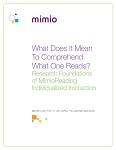 Good Morning Everyone,
Good Morning Everyone,I hope you had a great holiday.
I am writing to remind you I will be visiting on November 30th.
Cherie Rob have the details of the visit.
Over wheel time I would like to meet with teachers individually and review your running records, your groups, and your DRA 2 data. Please have a calendar of the times you have met so far.
December is creeping up on us - meaning we only have about 6 1/2 months left of school!! YIKES!!
As always, I am looking forward to seeing you,
Darlene







